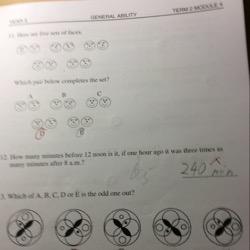
These problems, I believe, make it clear that we need to consider alternatives to our predominant research approach to improving services. Importantly, most of the research on AI and precision medicine I cite deals with adults, as there is little research in this area on children and youth. I then discuss how AI and precision mental health can help inform the path forward, with a focus on similar problems manifested in mental health services for adults. Lastly, I make the case for why I think AI and the parallel movement of precision medicine embody approaches that are needed to augment, but probably not replace, our current research and development efforts in the field of mental health services. I describe five principal causes of this failure, which I attribute primarily, but not solely, to methodological limitations of RCTs. Before proposing such solutions, I first describe the challenges currently faced by mental health services, using examples drawn almost entirely from studies of children and youth, the area in which I have conducted most of my research. Toward that end, I focus much of this paper on the role of AI and precision medicine as a critical movement in the field with great potential to inform the next generation of research. While I use precision medicine and precision mental health interchangeably, I will differentiate them later in this paper.

While not necessarily a substitute for RCTs in efforts to improve mental health services, I believe that AI provides an exciting alternative to RCTs or an adjunct to them. With the development of AI and its application in precision medicine, I now believe that AI is another approach that we may be able to use to understand, predict, and influence human behavior.

The potential solution to my quandary did not crystallize until 2016, when I collaborated with Aaron Lyons and Miranda Wolpert on a paper on what we called “precision mental health” (Bickman et al. I did not see a plausible alternative or complement to RCTs until recently, when I began to read about artificial intelligence (AI) and precision medicine in 2013. However, as some of my writing indicates, it was a commitment with reservations. 104–105).įor the much of my career, I was a committed proponent of the RCT as the best approach to understanding causal relationships (Bickman 2006). In fact, I became a committed experimentalist, and I dealt with the limitations of experiments by recognizing their restrictions and abiding by the principle “For determining causality, in many but not all circumstances, the randomized design is the worst form of design except all the others that have been tried Footnote 1” (Bickman and Reich 2014, pp. But I had to finish the paper, so I relegated these and similar questions to the list of universal imponderables such as why I exist. How could we complete all the randomized experiments needed? How many different outcomes should we measure? How could we learn to improve treatment? How should we consider individual differences in these group comparisons? I am sure I was not insightful enough to think of all these questions back then, but I know I felt frustrated and stymied by our methodological approach to answering these questions. Developing an effective treatment would take what seemed to me an incalculable number of randomized trials. It was clear that simply describing, let alone manipulating, the relevant characteristics of this one disorder and promising treatments would require hundreds of variables.
#Turmoil unscramble trial#
Then, as now, the predominant research design was the randomized experiment or randomized clinical trial (RCT).
#Turmoil unscramble how to#
I was not very modest even as a first-year graduate student! But I was puzzled as to how to develop and evaluate a cure. In 1963, I was writing my first graduate paper at Columbia University on curing schizophrenia using Sarnoff Mednick’s learning theory. I identify exemplars from the emerging literature on artificial intelligence and precision approaches to treatment in which there is an attempt to personalize or fit the treatment to the client in order to produce more effective interventions. Toward that end, I draw upon my own research, which has changed over the last half century, to highlight the need to transform the way we conduct mental health services research. I focus on the potential contributions of artificial intelligence and precision mental health to improving mental health services. This conceptual paper describes the current state of mental health services, identifies critical problems, and suggests how to solve them.


 0 kommentar(er)
0 kommentar(er)
